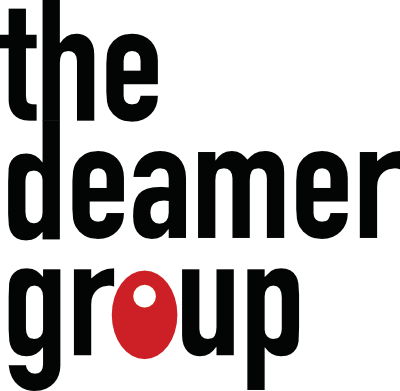When you want to do a nice thing for someone at work, what can you do? You could compliment them at the water cooler, prepare them a coffee or a batch of cookies, publicly recognize their great performance on a project—the list goes on, but different methods work for different people. For example, while you personally might dislike public recognition, you really appreciate a genuine compliment.
In times of high competition for talented and skilled job-seekers, you want to do everything to keep the current star employees you have. Their motivation styles, however, are as unique as they are, requiring varied types of praise to create a culture of recognition at your company that helps colleagues feel valued in the workplace and thus more likely to stay.
What’s a recognition culture?
Jeff Haden at Inc.com writes that an old boss “started every management meeting by having every supervisor share two examples of employees they recognized or praised that day. At first, it seemed cheesy and forced, but we quickly embraced it […] natural competitiveness caused a few of us to help our employees accomplish things worthy of praise, so we had great stuff to report.”
Making recognition measurable requires some coordination with your company’s higher-ups, but HR plays a crucial role in regulating the healthy emotional ecosystem of the company. If your motivational system harkens back to the high expectations the employees had in their initial interview and onboarding, you’re doing it right.
Why employees choose to stay or leave
A LinkedIn survey asked employees, “What would make you feel like you belong at the company where you work?” The most frequently given answer of 12 categories was “Being recognized for my accomplishments” at a whopping 59% of respondents. The second was “Having opportunities to express my opinions freely” at 51%, and third at 50% of respondents were “Feeling that my contributions in team meetings are valued.”
These answers are telling, especially in connection with research from Peakon that found employee engagement and loyalty drop nine months before they ultimately quit. The good news is that if you can identify the signs, you have a window of time in which to try to reverse the damage or avoid a decline in employee engagement altogether.
That brings us to the million-dollar question: How can you improve engagement and thus, retention?
Authenticity is a must
Don’t get nervous about pitching this to your boss—the best strategies cost no money, just some investment in company culture with a human touch.
While “employee of the month” programs are a thing of the past, sincerity is evergreen. Haden describes how his boss would circle the office every Thursday at 1 p.m. While he said nice things, all employees could tell he was just checking off a box on his to-do list. That’s why, if people detect you’re not genuine, your motivational efforts will fall flat and may actually have the opposite effect—especially on top talent.
When you want something to have the most impact—think about sending a cold email or launching a new marketing effort—you target it. Choosing a method for motivating your hires is no different. It involves extrapolating knowledge of employee personalities and interests towards the type of praise they are most likely to appreciate.
Entrepreneur’s take on winning strategies for retention has four factors: performance, communication, loyalty, and competitive advantage. Here we’ll discuss the first three with tips you can put to work today.
Performance
If 59% of employees specifically say they’d like to be recognized for their achievements, it’s the job of a team leader to set the conditions for achievement with measurable milestones.
Where it comes to HR, never forget you are the first impression an employee gets of their prospective company. It’s you who matches job descriptions and company culture to candidates’ hard and soft skills.
Implement it:
When one of your hires reaches a goal, you might remind them that you saw it in them from the beginning. This will solidify their connection with the company and its values, but remember to tailor to your audience, as some individuals crave the spotlights while others cringe.
It’s not a good idea to compliment for the sake of complimenting or for everyday work, which either “[creates] a sense of entitlement or the compliments eventually falling on deaf ears.” Keep a lookout, however, for workers who deserve praise for exceptional performance or solid continuous work.
Communication
The phrase “Communication is key” is true for every area of life and work, and especially so in HR.
The LinkedIn survey shows that employees crave an open work environment where they receive honest feedback and have genuine concerns listened to, not just placated. As an HR rep, be approachable while quality communication informs your motivational strategy.
Implement it:
When you aim to praise someone, don’t wait. The more time passes between exceptional work and recognition, the lower your impact will be.
Tell the employee exactly what they did well and how they did it well (but save constructive feedback for another time). Be specific for the best effect: “Good job on the Smith project” will inspire more than “Good job.” This genuine and well-appreciated gesture doubles as a signal to repeat the same great performance.
Loyalty
Loyalty is crucial in all good relationships, no less towards a company, manager, or team, but it must be earned. Employees who feel valued and respected are not just less likely to look elsewhere; they may stay specifically because of their loyalty to the company values they’ve been shown.
Implement it:
It’s good practice for a business to encourage the career growth of its employees, one of the most commonly cited factors for employee loyalty. Consider hiring internally for vacancies before searching elsewhere, which reinforces the idea that successful workers can and do move up the company ladder.
Further, you can push for policies that ensure employees take advantage of their vacation time. (Many companies even mandate vacation time.) It’s no secret that American workers tend to feel guilty about taking time off, but this leads to a vicious cycle of stress and low morale. The same way you need a good night’s sleep after a hard day’s work, all workers need a vacation to stay motivated and engaged.
How motivating employees pays off
Remember how Jeff Haden described the culture of recognition at the beginning of this article? Fostering a positive, motivational work atmosphere benefits everyone, including HR. As Haden says, “Recognizing effort and achievement is self-reinforcing.” Employees who feel seen and recognized will perform better, giving you (and your bosses) even more achievements to praise. You’ll gain confidence in your hires, raise company morale as a whole, and take huge strides towards increasing employee loyalty and retention.

